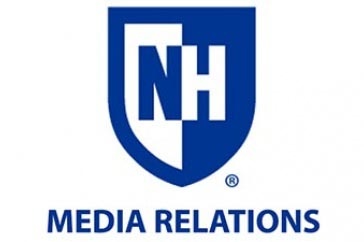UNH Receives Grant to Enhance Energy and Water Needs on Coastal Islands

DURHAM, N.H.— Living on a remote island can be idyllic but it does come with some challenges when accessing inexpensive and reliable energy as well as clean drinking water. The University of New Hampshire has received a grant from the U.S. Economic Development Agency to help island communities in the Gulf of Maine find viable and sustainable solutions modeled after a renewable energy microgrid system that powers the Shoals Marine Laboratory (SML) on Appledore Island.
“This project will serve isolated, seasonal or year-round island communities looking to enhance their sustainability through the addition of energy and water micro-grid systems,” says Diane Foster, director of UNH’s School of Marine Science and Ocean Engineering and principal investigator for the project. “The partnership will allow us to translate technological advances to communities looking for solutions.”
The goal of the project is to facilitate knowledge and technology to help improve economic resilience and opportunities on remote islands, especially in the face of climate change. The team will use lessons learned from the SML, jointly run by UNH and Cornell University, which has been dealing with such energy and water challenges for decades in order to serve the faculty, staff and students who spend summers in the Isles of Shoals. The SML has worked to integrate renewable energy and water-saving solutions into its system, including composting toilets, reverse osmosis and solar panels. The SML does not have a control system to network and operate the power and water systems as one, so the project will incorporate work with engineers to create a model that they can demonstrate to other island communities.
“Sustainability is a core value and strength at the SML,” said Jennifer Seavey, SML’s executive director and co-investigator. “We have worked with regional partners to help them with their own sustainability infrastructure and we are excited to partner on this project to bring sustainability to a wider audience to grow awareness and technology regionally and globally: problem solve, demonstrate and assist others.”
Island communities usually have limited options to address energy and water needs often depending on unreliable and expensive options like diesel generators, underwater cables and limited island freshwater aquifers. Researchers say Gulf of Maine island residents spend 16 to 18 percent of their median income on home heating and electricity compared to an average of three percent for mainland residents nationwide. In addition, many of the island inhabitants are self-employed, often working in the fishing or tourism sectors with limited resources and flexibility to adapt to changes in market demand.
UNH Cooperative Extension will assist by traveling to islands to engage with island communities to convene citizens and better understand their energy needs, as well as the barriers and opportunities for them to access more reliable and cost-effective options for clean energy and water.
“From this project I would like us to develop a roadmap for remote and island communities that puts the knowledge and power in their hands for making key decisions about energy and water infrastructure,” said Charlie French, director of UNH Extension’s Community and Economic Development Program and co-investigator.
Revolution Energy will support economic and entrepreneurial development and assist in building the collaboration network. ReVision Energy will provide engineering and consulting services to support the design and implementation of a control system and tie three existing microgrids into a single system.
The University of New Hampshire inspires innovation and transforms lives in our state, nation and world. More than 16,000 students from all 50 states and 71 countries engage with an award-winning faculty in top-ranked programs in business, engineering, law, health and human services, liberal arts and the sciences across more than 200 programs of study. As one of the nation’s highest-performing research universities, UNH partners with NASA, NOAA, NSF and NIH, and receives more than $110 million in competitive external funding every year to further explore and define the frontiers of land, sea and space.
Latest News
-
June 18, 2024
-
June 18, 2024
-
May 17, 2024
-
May 14, 2024
-
May 7, 2024

















































